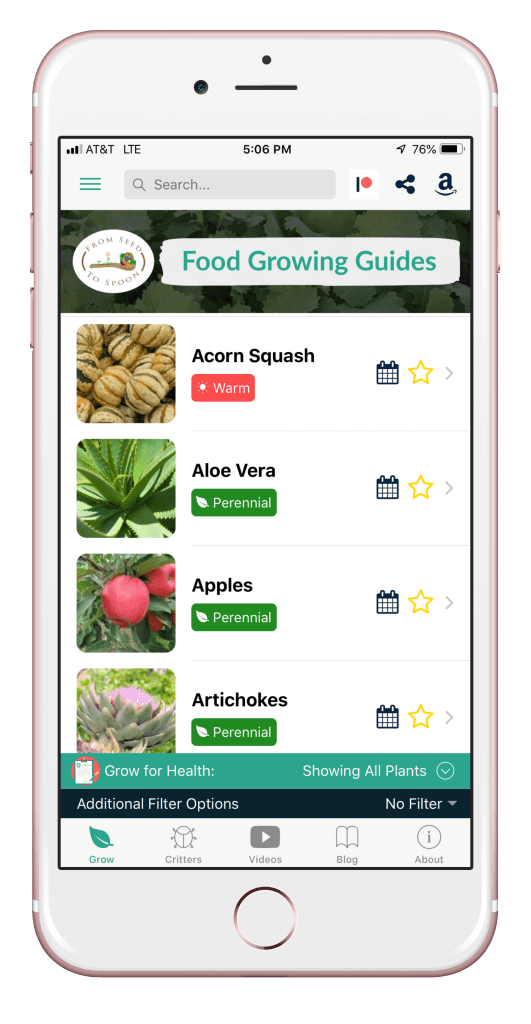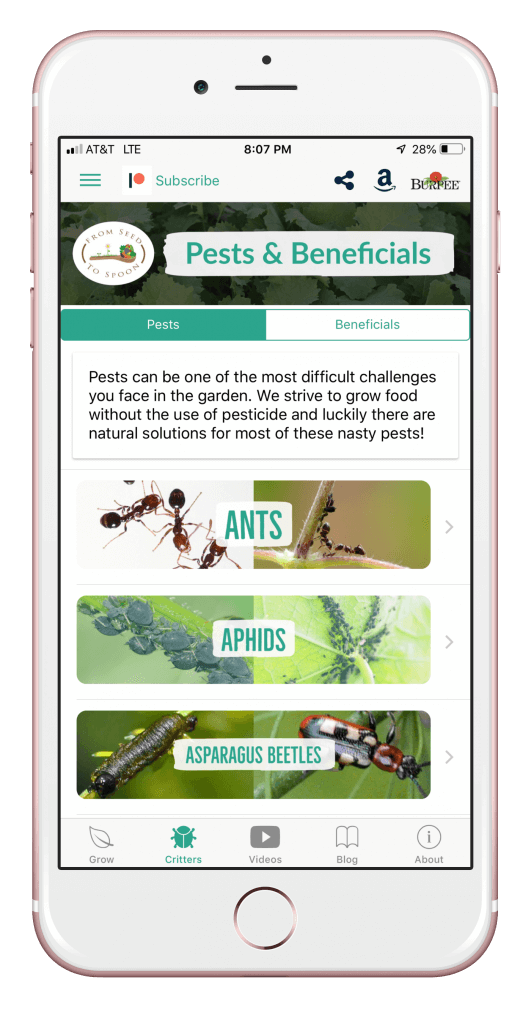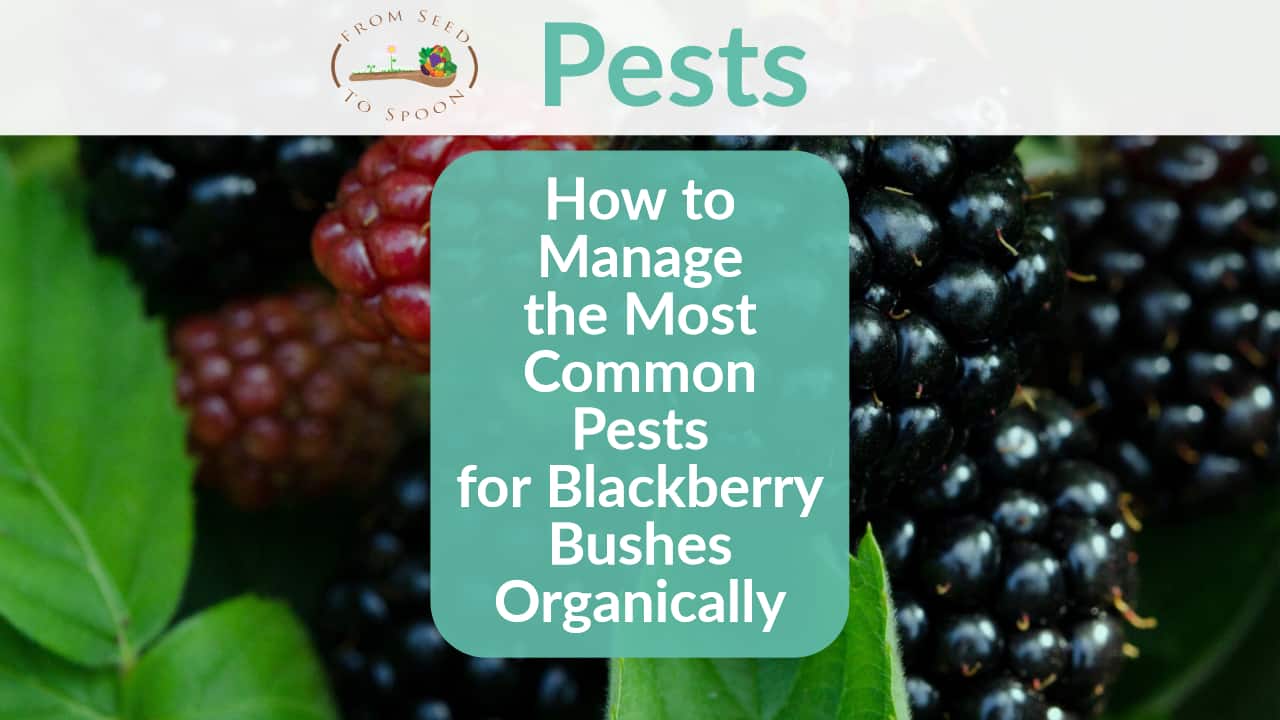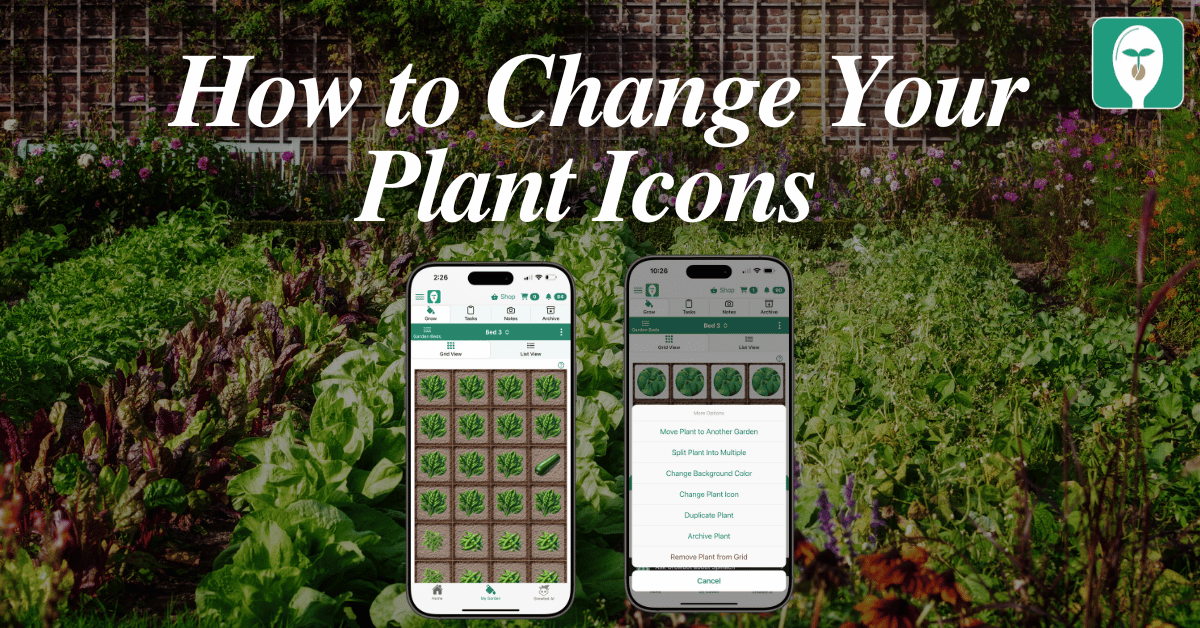Blackberry bushes are fairly easy to grow and are well worth the reward! Luckily there are few pests that bother these bushes and many organic options to help manage them!

Treatment Options:
- You can protect your seeds by covering them with a layer of burlap or shade cloth. I typically hold it down with a hardware mesh panel because that’ll help keep cats out as well.
- Automated motion-activated sprinklers are a great way to keep birds off of a particular area.
- Bird netting will keep birds off of your tomatoes, berries, and other fruits!
- Scare tape will also help keep birds away from problem areas.
- We also have a couple of fake owls stationed around the garden that are meant to scare birds away. Be sure to move them around every day or so, or the birds will figure out your trick!

Treatment Options:
- You can protect your seeds by covering them with a layer of burlap or shade cloth. I typically hold it down with a hardware mesh panel because that’ll help keep cats out as well.
- Automated motion-activated sprinklers are a great way to keep birds off of a particular area.
- Bird netting will keep birds off of your tomatoes, berries, and other fruits!
- Scare tape will also help keep birds away from problem areas.
- We also have a couple of fake owls stationed around the garden that are meant to scare birds away. Be sure to move them around every day or so, or the birds will figure out your trick!

Treatment Options:
- Insect netting (floating row covers) provide the best form of protection against earwigs.

Treatment Options:
- Removing all the surrounding debris and weeds from around your trees or bushes can help to prevent egg laying by the moths.
- Hand picking infected fruits and disposing of them can help prevent spread of the worms.
- Use the organic pesticide, BTK (bacillus thuringiensis Kurstaki). BTK is a naturally occurring microorganism that sickens and kills caterpillars without harming butterflies, bees, and other beneficial insects. There are varied opinions regarding the safety of BTK, but it’s classified as an organic treatment and is certainly safer than using a more toxic pesticide.
- The fruit worm comes from a moth that lays its eggs into fruit. Catching the moths that lay these eggs can help to prevent a worm problem in the future.

Treatment Options:
- Hand-picking and squishing or placing them in a soapy water bucket is a great way to get rid of these pests.
- Companion planting can help deter leaf-footed bugs. Sunflowers are especially good at attracting these pests away from other plants.
- Another good prevention is to remove excess weeds and grass around the garden areas as this can help to attract them.
- Placing insect netting (floating row covers) over your garden is the best way to prevent leaf-footed bugs from attacking your plants.
- Diatomaceous earth can also be laid down around your garden to help get rid of them.
- Applying neem oil can also be effective for the nymph stage of leaf-footed bugs. Make sure not to apply the neem oil when the temperature is above 90, or else you could suffocate your plant!

Treatment Options:
- Placing a motion-activated sprinkler near where the problem area is will help to scare the raccoons away.
- Raccoons are scared of larger predators. Applying blood meal around the perimeter of your garden has been shown to deter small mammals. Raccoon repellent, fox urine granules, or even human hair and urine can help to deter them as well.
- Raccoons can be scared of noises as well. You can leave a radio close to the problem area to try and scare them away.
- They can also be deterred by a mixture of garlic and chili powder sprinkled around the problem areas.
- You can also set up a small animal cage trap to catch the raccoon if all else fails!

Treatment Options:
- As soon as you notice the issue, simply remove the portion of the affected plant and throw in the trash or burn.

Treatment Options:
- Stationing a fake owl or scarecrows around the garden are helpful tricks to scare away squirrels. Be sure to move them around every day or so, or they might figure out your trick!
- A motion-activated sprinkler in the problem areas can help to scare away your squirrels as well.
- Squirrels are scared of larger predators. Applying blood meal around the perimeter of your garden has been shown to deter small mammals. Squirrel repellent, fox urine granules, or even human hair and urine can help to deter them as well.
- Cats and dogs are effective hunters of squirrels and other small rodents! Even just their smell and presence in the yard can help to keep them out of your gardens.
- Squirrels dislike strong and spicy smells. Try making an apple cider vinegar spray or sprinkle cayenne pepper around your garden.
- There are also ultrasonic pest repellers that you place in the ground that send vibrations out to scare them away.
- If all else fails, you can also set up a live animal cage trap.
Learn more about growing over 100 different foods, including how to manage various pests in our FREE iOS, Android, or Universal Web App!



Carrie Spoonemore, co-founder of “From Seed to Spoon,” stands as a beacon of inspiration for gardeners and health enthusiasts alike. Her journey alongside her husband, Dale Spoonemore, in creating a platform that demystifies gardening and promotes a healthier lifestyle, has made a significant impact on individuals around the globe. Through the “From Seed to Spoon” app, Carrie has dedicated herself to empowering people to take control of their health and environment by growing their own food.
With a profound belief in the power of gardening to improve mental and physical health, Carrie’s contributions to the Seed to Spoon blog reflect her holistic approach to wellness. Her articles often focus on the nutritional benefits of homegrown fruits and vegetables, organic gardening practices, and the mental health benefits of spending time in nature. Carrie’s expertise in health science shines through in her detailed discussions on how specific plants can contribute to a balanced diet and overall well-being.
Carrie’s passion for gardening is deeply intertwined with her commitment to family and community wellness. She frequently shares personal stories of how gardening has brought her family closer together, offering practical tips for involving children in gardening activities and making it a fun, educational experience. Her writing encourages families to explore gardening as a means of spending quality time together while learning about nature and sustainability.
In addition to gardening advice, Carrie’s contributions to the blog include insights into the use of technology to enhance the gardening experience. She has played a crucial role in designing the “From Seed to Spoon” app to be user-friendly, ensuring that users of all ages and backgrounds can navigate the complexities of gardening with ease. Her vision for the app is not just as a gardening tool but as a vehicle for change, inspiring individuals to adopt a more sustainable lifestyle by growing their own food.
Carrie Spoonemore’s presence on the blog is marked by her compassionate approach to teaching and her unwavering belief in the transformative power of gardening. Her work continues to inspire a community of gardeners to pursue a healthier, more sustainable way of living, proving that with the right tools and knowledge, anyone can become a gardener and advocate for their health and the planet.








2 thoughts on “How to Manage the Most Common Pests for Blackberries Organically in Your Backyard Vegetable Garden”
As with roses, proper pruning and removal of foliar debris from the ground in winter is important to control foliar diseases. It is impossible to remove all of the overwintering spores from the soil, but removal of the debris eliminates much of the material that the spores ovewinter in. The main problem that I notice with cane berries is that they do not get pruned enough.